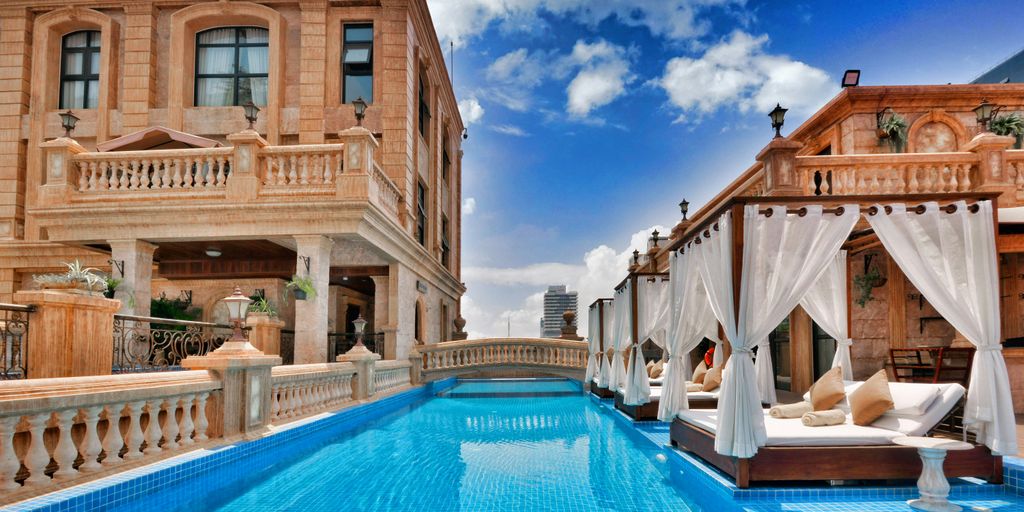When you’re part of a high-net-worth family, travel isn’t just about seeing new places; it’s about doing so safely and without worry. Villas offer a great way to travel, but they come with their own set of security needs. Thinking about things like who’s around, what tech you’re using, and how to keep everyone, especially the kids, safe is super important. It’s all about making sure your trip is relaxing, not stressful. This means planning ahead and having a solid strategy, especially when it comes to Family Office Travel Security.
Key Takeaways
- Understand that a family’s wealth and public profile directly impact travel security needs, making careful planning essential.
- Secure villa locations and robust physical security, combined with smart technology, form the backbone of safe travel.
- Family Office Travel Security involves coordinating transport, vetting staff, and preparing for unexpected issues.
- Protecting children requires age-appropriate security measures and careful management of their online presence.
- Discreet security operations and proactive intelligence gathering are vital for maintaining privacy while ensuring safety.
Understanding the Unique Risks for High-Net-Worth Families
When you’re part of a high-net-worth (HNW) family, the world looks a bit different, especially when it comes to safety. It’s not just about locking doors; it’s about understanding that your lifestyle, your visibility, and yes, your wealth, can make you a target. Think about it – your family’s name might be in the news, or your business dealings are public knowledge. This kind of attention, while sometimes unavoidable, definitely changes the security game.
Assessing Personal and Family Vulnerabilities
Every family has weak spots, but for HNW families, these can be amplified. It’s about looking at who you are, what you do, and how you live. Are there predictable routines? Are there specific assets that are particularly valuable or attractive? Sometimes, it’s the people closest to you – staff, friends, even distant relatives – who might unknowingly (or knowingly) create an opening for trouble. It’s a bit like a puzzle, figuring out where the potential risks lie before someone else does.
The Impact of Public Profile on Security Needs
Your public profile is a big deal. If your family is often in the spotlight, whether through business, entertainment, or philanthropy, that visibility is a double-edged sword. Paparazzi, social media, and even just general public awareness mean that your movements and activities are more easily tracked. This doesn’t mean you have to hide away, but it does mean that security needs to be smarter, more adaptable, and often, more visible to deter potential threats, while still trying to maintain a sense of normalcy.
Identifying Wealth-Related Target Attractiveness
Let’s be direct: wealth attracts attention. This isn’t just about cash; it’s about the tangible things that signal affluence – expensive cars, jewelry, art collections, even vacation homes. These items can be targets for theft or can be used as leverage. Understanding what makes your family a ‘target’ involves a realistic look at your assets and lifestyle. It’s about recognizing that while these things are part of your life, they also require a specific kind of protection that goes beyond standard home security.
Strategic Villa Security Planning
When planning security for a villa, especially for high-net-worth families, the location itself is a big part of the puzzle. You want somewhere that feels private and safe, but also somewhere that doesn’t scream ‘look at me, I’m rich!’
Selecting Secure and Discreet Villa Locations
Choosing the right villa is more than just picking a pretty place. It’s about finding a spot that offers a good balance of privacy and accessibility, without being too obvious. Think about places that aren’t right on the main road or easily visible from public areas. Sometimes, a villa that’s a little further out, perhaps in a gated community or a more secluded area, can offer better protection. We also look at the surrounding neighborhood – is it generally safe? Are there local security services available? It’s about blending in, not standing out.
Implementing Robust Physical Security Measures
Once you’ve got the villa, you need to make sure it’s physically secure. This isn’t just about having a strong front door. We’re talking about things like:
- Perimeter Security: This could include sturdy fencing, walls, or even natural barriers like dense foliage. The goal is to make it difficult for unauthorized people to get close.
- Access Control: Think about how people get in and out. Key card systems, secure gates, and even security personnel at entry points can make a big difference.
- Lighting: Good lighting around the property can deter unwanted visitors. Motion-sensor lights are a good option.
- Window and Door Security: Strong locks, reinforced glass, and even security bars on vulnerable windows are important.
Integrating Technology for Enhanced Surveillance
Technology plays a big role these days. It’s not just about having cameras everywhere, though that’s part of it. We look at:
- CCTV Systems: High-definition cameras covering key areas, with good night vision capabilities. These should be monitored, either on-site or remotely.
- Alarm Systems: Intrusion detection systems for doors, windows, and motion sensors inside the villa.
- Communication Systems: Reliable ways for security staff to communicate with each other and with external support if needed.
- Smart Home Integration: Sometimes, security can be tied into the villa’s smart systems, allowing for remote monitoring and control.
The key is to use technology in a way that supports the overall security plan without being overly intrusive or obvious. It should feel natural, not like a fortress.
We also consider how these systems work together. An alarm going off should trigger cameras to record, and security personnel should be alerted immediately. It’s about creating layers of protection that work in harmony.
Comprehensive Family Office Travel Security

When a family office plans travel for high-net-worth (HNW) individuals and their families, it’s about more than just booking flights and hotels. It’s a detailed operation focused on keeping everyone safe and private, especially when moving between different locations. This means thinking about every step of the journey, from the moment they leave their home until they return.
Coordinating Seamless and Secure Transportation
Getting from point A to point B safely is a big deal. This involves planning how the family will travel, whether it’s to the airport, between venues, or to local attractions. It means using trusted drivers and vehicles that are appropriate for the situation, and always having a backup plan if something unexpected happens. The goal is to make travel smooth and worry-free, so the family can focus on their trip, not on how they’re getting around.
Ensuring Staff Vetting and Reliability
Anyone working with the family, whether it’s drivers, household staff, or security personnel, needs to be trustworthy. The family office has to do its homework, checking backgrounds and making sure everyone involved is reliable and professional. This is important for maintaining privacy and security, as you want to know that everyone on the team is looking out for the family’s best interests.
Developing Contingency Plans for Unforeseen Events
Things don’t always go as planned, especially when traveling. The family office needs to have plans in place for different scenarios, like medical emergencies, travel disruptions, or security issues. This means knowing what to do if someone gets sick, if a flight is canceled, or if there’s a problem at the villa. Having these plans ready helps the family feel secure, knowing that the family office is prepared for anything that might come up.
Protecting Children and Vulnerable Family Members
When you’re traveling with family, especially with kids, security needs a different kind of attention. It’s not just about keeping everyone safe, but also making sure they feel comfortable and not overly restricted. Think about it – kids are naturally curious, and sometimes that can lead them into situations that aren’t ideal. We need to plan for that.
Age-Appropriate Security Protocols
Security for younger family members needs to be subtle. The goal is to protect them without making them feel like they’re under constant watch. This means security personnel who can blend in, perhaps acting as nannies or tutors, rather than uniformed guards. It’s about creating a safe bubble without them feeling trapped.
Safeguarding Digital Exposure During Travel
Kids and teens often share a lot online without thinking. During travel, this can be a real risk. Posting photos of a luxury villa or mentioning specific locations can inadvertently signal to the wrong people where you are. We can help with advice on limiting social media activity or using privacy settings before and during trips.
Emergency Preparedness and Response Training
Things can go wrong, even with the best planning. It’s important that everyone in the family, and especially the security team, knows what to do in an emergency. This includes basic first aid, especially for children, and having clear plans for different scenarios, like getting separated or dealing with a medical issue. Having a plan makes a big difference when something unexpected happens.
It’s about striking a balance: keeping the family secure while still allowing them to enjoy their trip and create good memories. The security measures should support the family’s experience, not detract from it.
The Importance of Discreet Operations

When you’re traveling, especially with family, the last thing you want is a big show. It’s all about staying safe without drawing unwanted attention. Think of it like this: you want the security to be there, working behind the scenes, so you can just relax and enjoy your trip. It’s not about making a statement; it’s about making sure everything runs smoothly and privately.
Maintaining Privacy Without Compromising Safety
Keeping your family’s privacy intact while on the road is a big deal. This means our security teams work in a way that doesn’t make you stand out. We aim to blend in, so you don’t feel like you’re under a spotlight. It’s a careful balance – being protected but also feeling normal and unbothered.
Blending Security Personnel into the Environment
Our approach is to have our security staff look and act like they belong. If you’re at a resort, they might look like guests or part of the hotel staff. If you’re in a city, they’ll blend with the local crowd. This way, they can keep an eye on things without anyone noticing, which is much better for everyone involved.
Confidentiality in Service Delivery
What happens on your trip, stays on your trip. We take confidentiality very seriously. All information about your travel plans, your family, and your security arrangements is kept private. Our team understands that discretion is key, and they are trained to handle sensitive information with the utmost care.
Leveraging Intelligence for Proactive Protection
Staying safe when you travel, especially with your family, isn’t just about having people around you. It’s really about knowing what might happen before it does. This means keeping an eye on things, both online and in the places you’re going. Think of it like checking the weather before a trip – you want to be prepared for anything.
Continuous Risk Assessment and Threat Analysis
We’re always looking at what could go wrong. This isn’t a one-time thing; it’s ongoing. We check for new risks, like changes in local politics or even just how people are talking about your family online. Understanding these potential problems helps us stay a step ahead. It’s about spotting trouble before it finds you.
Adapting Security Strategies to Travel Windows
Every trip is different, right? A quick business trip is not the same as a month-long family vacation. We adjust our security plans based on how long you’ll be gone, where you’re going, and what you’ll be doing. If you’re attending a big event, the security needs are different than if you’re just relaxing at the villa. We make sure the plan fits the trip, not the other way around.
Understanding Local Customs and Cultural Sensitivities
Knowing the local scene is super important. What’s normal in one country might be a problem in another. We look into local laws, how people behave, and any cultural things we need to be aware of. This helps us avoid accidental issues and makes sure our security team fits in and doesn’t cause problems. It’s about being smart and respectful wherever you go.
Securing Digital Assets and Online Presence
These days, keeping your digital life locked down is just as important as making sure your villa doors are bolted. It’s not just about physical stuff anymore; your online presence can actually give away a lot about where you are, what you’re doing, and who you’re with. Think about it – a casual post with a geotag or a picture showing off a new purchase could be seen by the wrong people. We’ve seen cases where family routines are figured out just by piecing together social media updates. It’s a real concern, especially when you’re trying to keep things private but still want to share a bit of your life.
Protecting Sensitive Data with Encryption
When you’re traveling, especially with family, you’re likely using various devices – phones, tablets, laptops. All of these can hold sensitive information, from travel plans and financial details to personal communications. Making sure this data is scrambled, or encrypted, is a big step. It means that even if someone managed to get their hands on your device or intercept a message, they wouldn’t be able to read it without a special key. It’s like putting your important documents in a locked safe instead of just leaving them on your desk.
Implementing Multi-Factor Authentication
This is a pretty straightforward way to add an extra layer of security to your online accounts. Instead of just a password, you’ll need a second form of verification, like a code sent to your phone or a fingerprint scan. It makes it much harder for unauthorized people to get into your accounts, even if they somehow get your password. It’s a simple habit that can prevent a lot of headaches.
Educating on Safe Social Media Practices
This is where the family really needs to be on the same page. Kids, especially, might not think twice about posting photos or checking in at locations. It’s important to have conversations about what’s okay to share and what’s not. Think about setting some ground rules before a trip: maybe no public check-ins at the villa, or being careful about who sees photos of the kids. It’s about being mindful of your digital footprint and how it can affect your real-world safety. We can help with workshops that make these points clear for everyone, from the youngest to the oldest.
It’s not about living in fear, but about being smart. A little bit of digital awareness goes a long way in keeping your family’s information private and secure while you’re enjoying your time away.
Building a Trusted Security Partnership
Building a strong relationship with your security provider is super important. It’s not just about hiring someone; it’s about finding a partner you can really count on, especially when you’re dealing with villas and family travel. Think of it like picking a good mechanic or a reliable accountant – you need someone who knows their stuff and has your back.
Collaborating with Family Offices and Staff
Your family office and household staff are already part of your inner circle. Bringing them into the security conversation makes everything run smoother. They often have the day-to-day insights that security teams might miss. When everyone’s on the same page, from the head of the household to the security detail, it creates a much safer environment. It’s about making sure everyone understands their role, even if it’s just being aware of who should and shouldn’t be around.
Selecting Experienced and Qualified Security Personnel
When you’re looking for security people, you want folks who have been around the block. Experience matters a lot. Look for individuals or teams with backgrounds in close protection, especially those who have worked with families or in similar settings. It’s not just about physical presence; it’s about their ability to assess situations, blend in when needed, and communicate effectively. A good team will have a mix of skills, maybe some former military or police, but also people who are good at reading people and situations.
Ensuring Staff Vetting and Reliability
This is a big one. You’re letting people into your private spaces, so you absolutely need to know who they are. Thorough background checks are non-negotiable. This goes beyond just criminal records; it includes checking references, looking into their work history, and sometimes even social media. Reliability is key – you need people who show up, are sober, and are focused on the job. It’s about building a team you can trust implicitly, because if you can’t trust the people protecting you, then what’s the point?
Developing Contingency Plans for Unforeseen Events
No matter how well you plan, things can go sideways. That’s where a good security partner shines. They should be thinking about what could go wrong and have plans in place for it. This could be anything from a medical emergency to a security breach or even just a flight delay that messes up your schedule. Having backup plans, knowing who to call, and having clear procedures means you can react quickly and effectively when the unexpected happens. It’s about being prepared for the worst, so you can enjoy the best.
Mitigating Risks in Unfamiliar Environments
When you’re traveling to unfamiliar places, especially with your family, things can get complicated fast. It’s not just about knowing where you’re going; it’s about understanding the rules and potential problems in that specific spot. You can’t just assume everything works the same way it does at home.
Navigating Variable Local Laws and Regulations
Every country, and sometimes even regions within a country, has its own set of laws. This includes things like rules about security personnel, how you can use technology for surveillance, or even what kind of vehicles are allowed. It’s important to know these things beforehand so you don’t accidentally break a law. For instance, some places have strict rules about filming or using drones, which could be part of your security setup. Getting this wrong can lead to big headaches, from fines to more serious trouble.
Addressing Political Instability and Targeted Crimes
Political situations can change quickly, and this can affect your safety. Protests, civil unrest, or even changes in government can create unpredictable environments. You also need to be aware of specific types of crime that might be more common in certain areas. If a region is known for kidnappings or targeted theft against wealthy individuals, your security plan needs to account for that. Being aware of the local climate is key to staying safe.
Ensuring Secure Access to Amenities and Services
Even simple things like going out to eat or visiting a local attraction require careful planning. You need to make sure the places you visit are safe and that your presence doesn’t create an unnecessary risk. This might involve pre-screening locations, coordinating with local security, or having a plan for how you’ll get there and back without drawing unwanted attention. It’s about making sure that accessing everyday services doesn’t become a security challenge.
The Five-Step Cycle for UHNW Family Security
Keeping your family safe when you’re on the move, especially when dealing with significant assets, isn’t just about having guards. It’s about a smart, ongoing process. Think of it like a cycle that keeps adapting. We’ve found that breaking it down into a few key stages really helps make sure nothing gets missed.
Identifying and Assessing Vulnerabilities
First off, we need to figure out what could go wrong. This means looking at everything – your usual travel spots, where you’re headed next, who’s around you, and even your online habits. Are there specific items you travel with that are particularly valuable? What’s your public profile like, and how might that attract unwanted attention? We also consider how your wealth itself might make you a target. It’s about spotting the weak points before someone else does.
Prioritizing and Planning Security Strategies
Once we know the potential risks, we have to decide what’s most important to protect and how. This isn’t a one-size-fits-all thing. We look at your specific situation and map out a plan. This might involve choosing less obvious travel routes, setting up better physical barriers at your villa, or deciding what kind of tech makes sense for keeping an eye on things. It’s about being smart with resources and focusing on what matters most.
Implementing and Auditing Security Measures
This is where the plan turns into action. We put the security measures in place – whether that’s the physical stuff like locks and alarms, the tech like cameras and monitoring systems, or even the people involved, like vetted staff or security personnel. But it doesn’t stop there. We then check to make sure everything is working as it should and that it’s still the right approach. Things change, so we periodically review and update the plan to keep it effective. It’s a continuous loop of checking and improving.
Keeping your family safe is a top priority. Our five-step plan helps ensure your loved ones are protected. Learn how to build a secure future for your family. Visit our website today to discover more about our family security strategies.
Peace of Mind for Your Private Getaway
Ultimately, enjoying a luxurious villa vacation shouldn’t come with added worries. By taking a smart approach to security, especially when traveling with family, you can ensure a truly relaxing experience. It’s about being prepared, understanding potential risks, and having the right support in place so you can focus on making memories, not on what might go wrong. Think of it as part of the overall luxury – a quiet assurance that everything is handled, letting you simply enjoy your time away.
Frequently Asked Questions
Why do wealthy families need special travel security?
Think of it like this: if you have a lot of money or are famous, some people might see you as an easy target for bad things. This means your security needs to be extra careful when you travel, especially to new places. It’s about making sure you and your family stay safe from people who might want to cause trouble because of your wealth or fame.
How do you pick a safe villa for a trip?
Choosing a villa is like picking a safe house. You want a place that’s not too obvious, maybe a bit out of the way, and has good locks and maybe even a security system. It’s important to look at the area around the villa too, to make sure it’s safe and you know who’s coming and going.
What does ‘family office travel security’ mean?
This means having a plan for everything, like how you’ll get from the airport to the villa safely, and how you’ll travel around once you’re there. It also involves making sure anyone working for you, like drivers or house staff, is trustworthy and has been checked out. Having backup plans for when things go wrong is also key.
How do you protect kids when traveling?
When kids are involved, security needs to be smart and not scary. It’s about keeping them safe without making them feel like they’re always being watched. Also, it’s important to be careful about what they share online during trips, as that can give away your location or other private info.
What does ‘discreet security’ mean when traveling?
Being discreet means keeping a low profile. Security guards might wear normal clothes and blend in, rather than looking like obvious bodyguards. The goal is to keep you safe without drawing extra attention or making people feel uncomfortable.
How can knowing about potential dangers help keep you safe?
This is like being a detective for your trip. You gather information about potential dangers before you go, like if a certain area is known for crime or if there are any political issues. Knowing the local customs also helps avoid accidental problems.
Why is online security important when traveling?
In today’s world, protecting your information online is just as important as physical safety. This includes using strong passwords, being careful about what you post on social media, and making sure your devices are secure to prevent hackers from getting your personal details.
What makes a good security partner for family travel?
It’s all about finding a security team you can trust. They should have experience, know about the places you’re going, and work well with your existing staff or family office. Think of them as a reliable partner who helps manage all the security details so you don’t have to worry.












